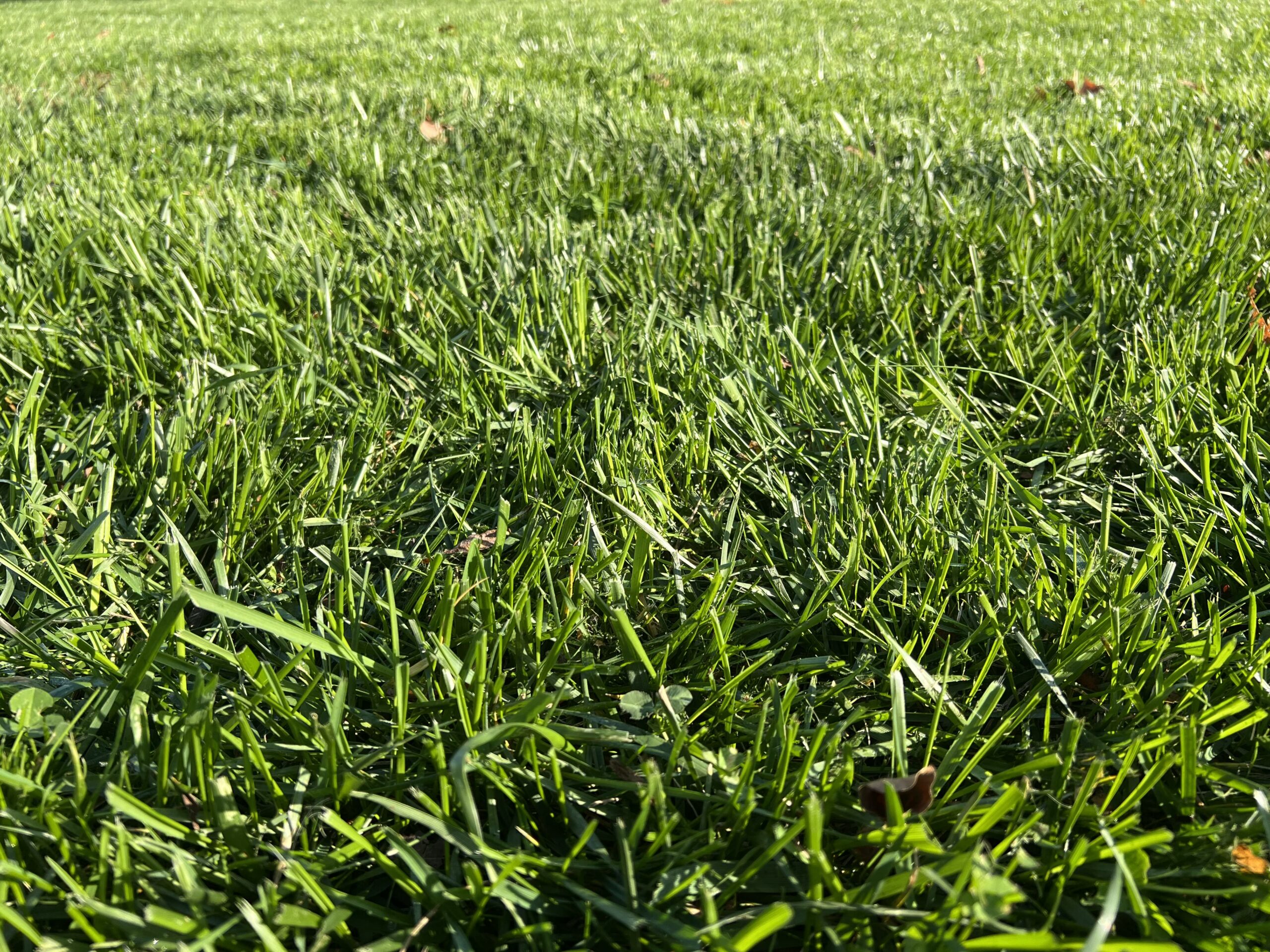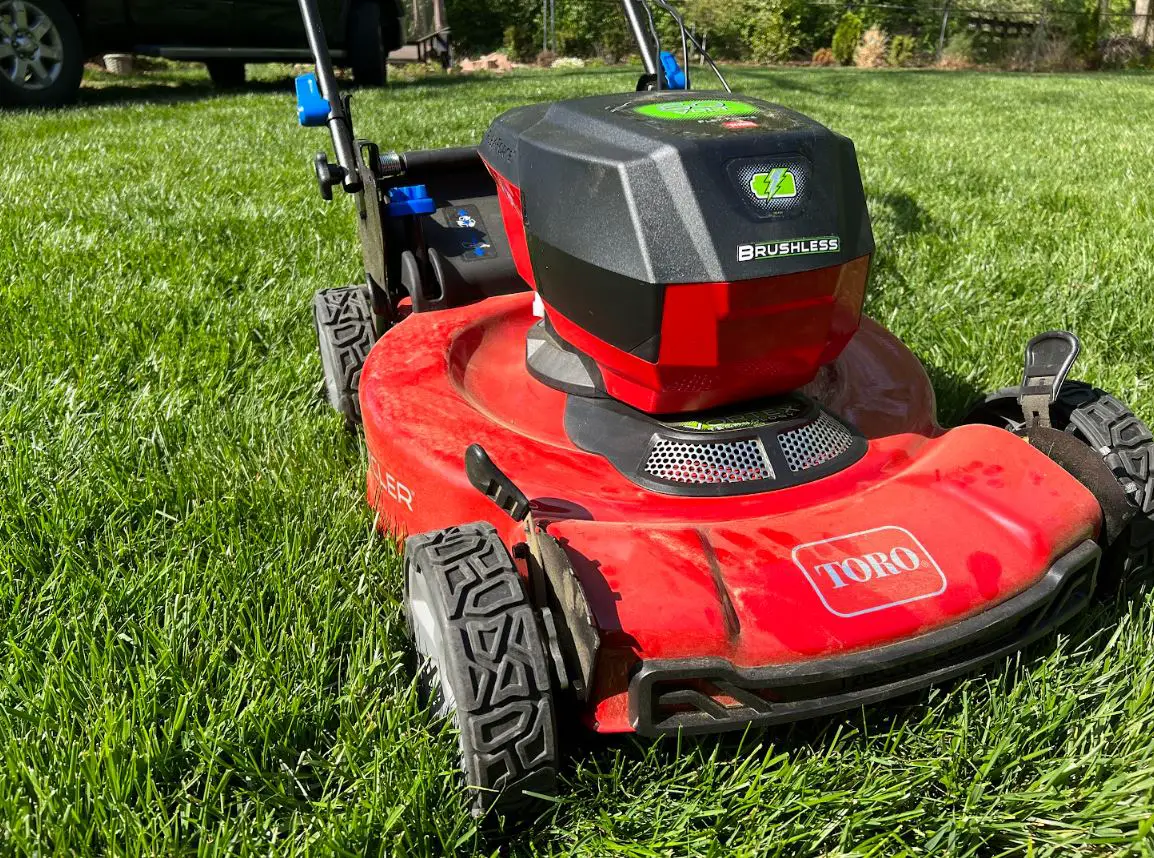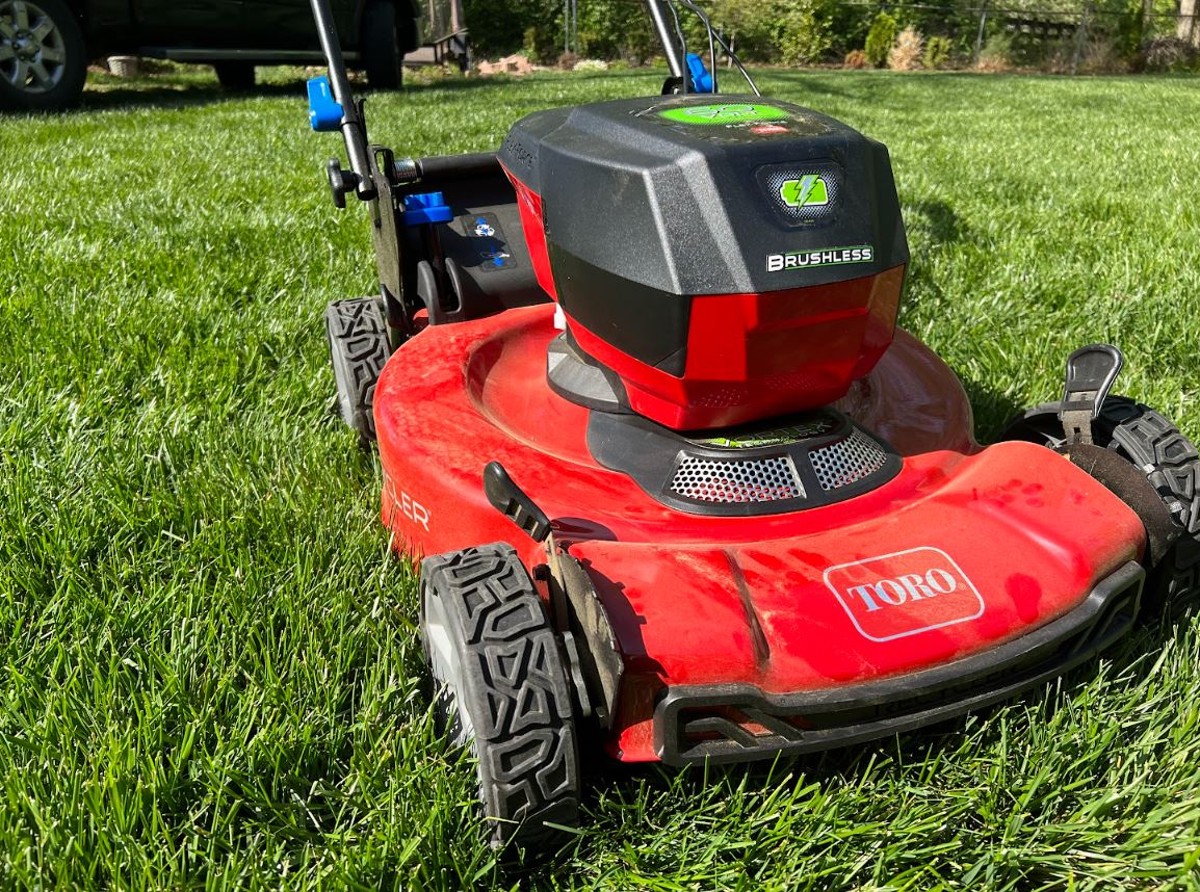Pressure washer nozzle types vary significantly depending on the type of job you’re doing. They can range from a soft, light mist all the way to an intense, laser-like cannon that crushes paint.
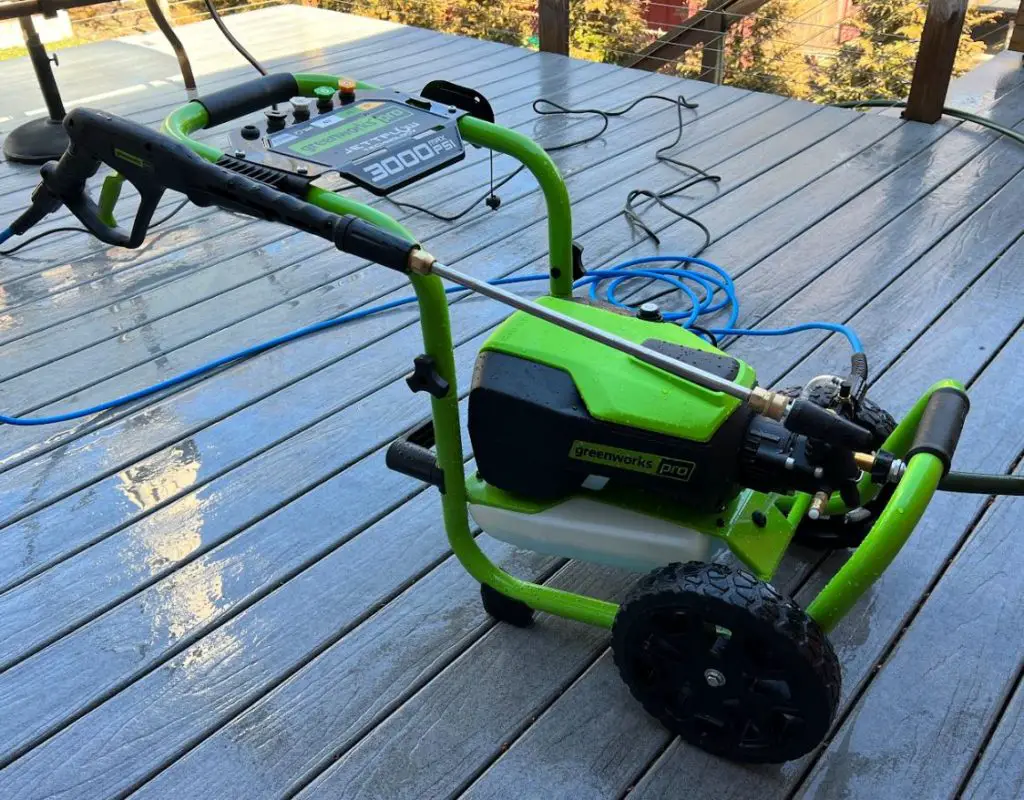
The sun’s out and all that built up dirt and grime on your home, garage, sidewalks, driveway, and vehicles is highly visible. A pressure washer is a fast, effective way to clean all these surfaces, and more. Before you fire up your new DIY tool, there are a few things that you should know about the nozzles that came with it. Otherwise, you may damage your home, car, or you may even injure yourself or someone else.
Pressure Washer Nozzle Type Basics
The nozzles are arguably the most important component of your pressure washer. As the water flows through the restricted opening of the nozzle its velocity increases. The force of the water hitting surfaces forces dirt and debris to be removed.The number of nozzles you’ll have to work with depends on the pressure washer manufacturer. Most of these come in quick-connect formats that allow you to quickly pop on and off different nozzles.
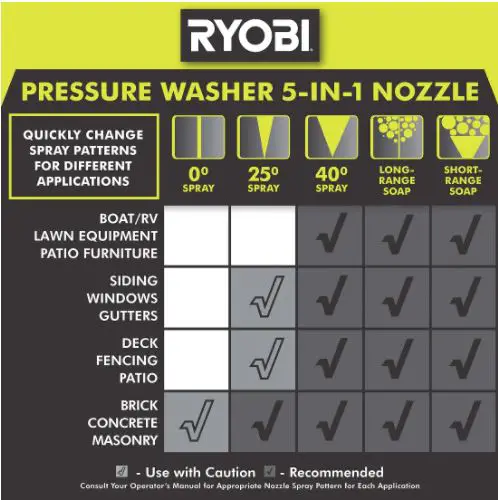
You can pop off the nozzles by pulling back on the tip of the spray gun and popping on the new nozzle.
Follow these general guidelines for when to use each type of pressure washer nozzle:
0° Pressure Washer Nozzle (also called Turbo Nozzle)
This nozzle provides the highest pressure your unit can handle. It’s best for areas like concrete driveways, sidewalks, graffiti, or objects that are further away. It’s also the ideal nozzle for cleaning stains from concrete and metal. Beware though, If you hold the nozzle too close for too long, you’ll carve a hole in your surface. This nozzle will also strip paint from wood surfaces and may even damage the wood itself, so use with caution.

The 0 degree nozzle funnels all of the PSI into the smallest area, giving maximum allowable pressure to whatever surface is unlucky enough to be on the receiving end. If you are going to clean a driveway, it may be better to use a pressure washer surface cleaner attachment instead of the 0 degree nozzle.
15° Pressure Washer Nozzle
This is the best nozzle for removing tough stains like mold and mildew on fences and other structures made of PVC. Your 15° nozzle will produce a very strong spray, so don’t hold it in one area for too long. If you’re cleaning your siding, spray from a distance to ensure even coverage across the vinyl. Don’t use this nozzle for painted wood siding or trim unless you’re prepping it for painting because it will strip the paint off.

This nozzle is great for cleaning things like patio pavers. It delivers a ton of power still without taking quite as long as the 0 degree nozzle.
25° Pressure Washer Nozzle
Beginner? The best place to start is with the green 25° nozzle If you’re going to clean your home’s siding, wood decks, concrete sidewalks, or even your driveway, this is the best nozzle for the job. In fact, it’s the right choice for cleaning just about everything around your home and garage including your yard and garden equipment and off-road vehicles.

My sister in law hates to get her hands dirty, but absolutely loves using her pressure washer. It is a mystery. Either way, she uses the 25 degree nozzle to wash off their garage door because it has a decent amount of power, a wider spray pattern, and won’t damage paint.
40° Pressure washer Nozzle
.Got a delicate surface to clean like your home’s windows or your beautiful car? Grab the 40° nozzle. It gives you the widest spray pattern of all your nozzles. The wide spray and low pressure make it perfect for cleaning all your delicate surfaces without fear of damage. It’s also exceptional for rinsing off patio furniture, play equipment, and outdoor toys.

These nozzles are great for windows, too. I always get the window sales people coming to my house because my windows are really old, but boy do they stay clean when I have this thing knocking off all the pollen.
Specialty Nozzles
Your pressure washer may also have come with a variety of special nozzles. These may include a turbo nozzle for edge cleaning, a soap nozzle, or a foam cannon. Each of these nozzles are great “bonus” nozzles for your pressure washer that let you do parts of the job more quickly. Soap cannons and foam cannons are great for washing the car and give you the same substance as driving through the car wash (although less scary).

Time to Start Pressure Washing!
Now that you have an understanding of your power washer nozzles and their uses, it’s time to get busy. Remember to always follow the manufacturer’s directions for the safe and proper use of your power washer and choose the appropriate nozzle for each job.
What features to look for in a pressure washer
Honda pressure washers make it relatively easy to knock off one of the biggest must-haves on your list: a reliable and powerful engine. But there are a few other things we recommend truly making sure are available when searching for a new pressure washer.
Nozzles Matter
- When choosing a pressure washer, you should pay attention to the nozzles included in the package. Two types of spray nozzles are available, adjustable spray nozzles that can be controlled and quick-connect nozzles with predefined spray patterns.
- The predefined spray patterns typically come in different angles, allowing for you to quickly switch between a broad, lower pressure spray or a narrow, higher pressure stream.
- Quick connect nozzles are super convenient, but they’re almost like airpods – you can lose them!
Soap tank availability
- Additionally, you may want to consider a soap tank-equipped pressure washer. Some of these pressure washers have “foam cannons” where you can simply add some soap and it will mix it in with the water. Pretty cool.
- I recommend a soap tank for cars and windows.
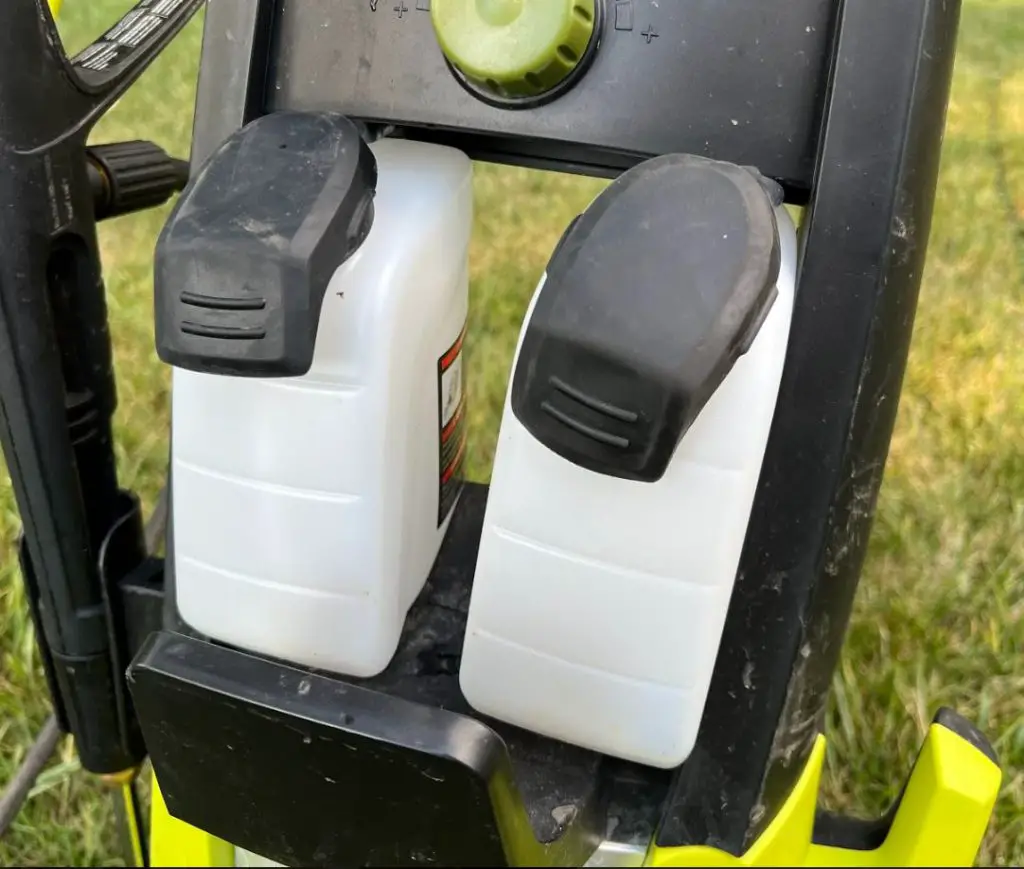
Wheels on pressure washers
- Despite these seemingly minor features, they can have a big impact, especially with larger units. No sense in lugging around one of these in your yard and tripping all over the place.
- Some pressure washers have a tendency to flip over and be top heavy, so make sure the base is sturdy.
- If you’re on the job site, keep an eye out for never-flat tires that will protect the wheels in case there are spare nails laying around.
Hose types
- There’s a big difference between how easy or difficult it is to use a pressure washer based on the kind of hose that comes with it. Stiff, rigid hoses make it extremely difficult to have any maneuverability without messing up the job or knocking over the base.
- Length is also important for pressure washer hoses as you can end up in a tight spot, literally, if you don’t have enough reach.
GPM and PSI on electric pressure washers
GPM stands for gallons per minute. GPM measures how quickly water is leaving the end of the electric pressure washer. PSI stands for pounds per square inch and is a measure of pressure that is being applied out of the electric pressure washer.
If this is confusing to you, you’re not alone. In reality, if you are looking for power, you want both. They work hand-in-hand to deliver water from the machine at a high rate and effective and efficient volume.
For reference, a pressure washer can have a high PSI but a low GPM, meaning it is able to have a high pressure but generally not over a large area. Having both a high PSI and high GPM means that it’s coming out fast and it’s producing a more effective stream.
Likewise, you can also have a low PSI and higher GPM. This is a good ratio for cleaning cars because you get a lot of water at a safer pressure.

